distantd-blog
285 posts
Don't wanna be here? Send us removal request.
Photo

I'm tired of doing the impossible for the ungrateful
15 notes
·
View notes
Quote
Henry Carpenter: Yeah, mom, if everybody did that then there would be no one to look out for the people who just can’t look out for themselves. Susan Carpenter: So what should I have done? I didn’t want things to get violent. Henry Carpenter: Violence isn’t the worst thing in the world. Susan Carpenter: What is then? Henry Carpenter: Apathy.
The book of Henry
6 notes
·
View notes
Quote
Our legacy isn’t what we write on our resume or how many commas we have in our bank account. It’s who we’re lucky enough to have in our lives and what we can leave them with. The one thing we do know, we’re here now. So I say we do the best we can, and that’s what I think about my legacy.
The book of Henry
0 notes
Quote
Harriet: Sarcasm, the wit of the witless,” Anne: "Condescension, the repartee of the rude.
0 notes
Quote
Fall on your face. Fail. Fail spectacularly. Because when you fail, you learn. When you fail, you live.
Harriet, The last word movie.
0 notes
Quote
You don't make mistakes. Mistakes make you. Mistakes make you smarter. They make you stronger, and they make you more self-reliant.
Harriet, The last word movie
0 notes
Quote
Please don't have a nice day. Have a day that matters. Have a day that's true. Have a day that's direct. Have a day that's honest. A nice day? Mm-mmm, you'll be miserable. Have a day that means something
Harriet, The last word movie.
0 notes
Photo

Thich Nhat Hanh gems
The day my mother died I wrote in my journal, “A serious misfortune of my life has arrived.” I suffered for more than one year after the passing away of my mother. But one night, in the highlands of Vietnam, I was sleeping in the hut in my hermitage. I dreamed of my mother. I saw myself sitting with her, and we were having a wonderful talk. She looked young and beautiful, her hair flowing down. It was so pleasant to sit there and talk to her as if she had never died. When I woke up it was about two in the morning, and I felt very strongly that I had never lost my mother. The impression that my mother was still with me was very clear. I understood then that the idea of having lost my mother was just an idea. It was obvious in that moment that my mother is always alive in me.
I opened the door and went outside. The entire hillside was bathed in moonlight. It was a hill covered with tea plants, and my hut was set behind the temple halfway up. Walking slowly in the moonlight through the rows of tea plants, I noticed my mother was still with me. She was the moonlight caressing me as she had done so often, very tender, very sweet… wonderful! Each time my feet touched the earth I knew my mother was there with me. I knew this body was not mine but a living continuation of my mother and my father and my grandparents and great-grandparents. Of all my ancestors. Those feet that I saw as “my” feet were actually “our” feet. Together my mother and I were leaving footprints in the damp soil.
From that moment on, the idea that I had lost my mother no longer existed. All I had to do was look at the palm of my hand, feel the breeze on my face or the earth under my feet to remember that my mother is always with me, available at any time.
- Thich Nhat Hanh, in “No Death, No Fear”. (Painting: Gustav Klimt, detail)
132 notes
·
View notes
Photo
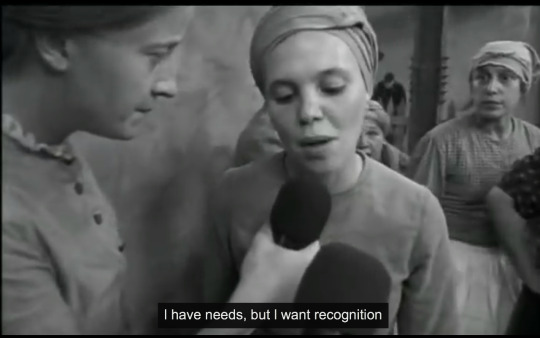
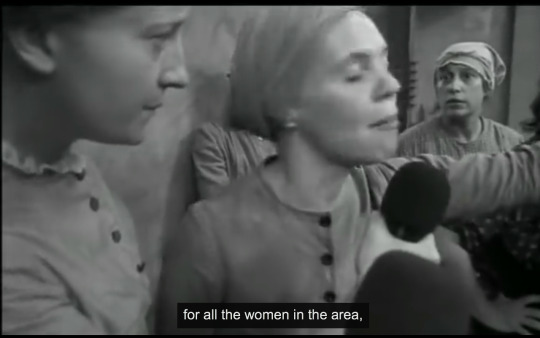
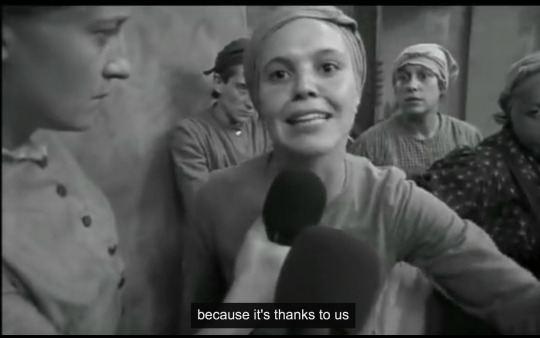


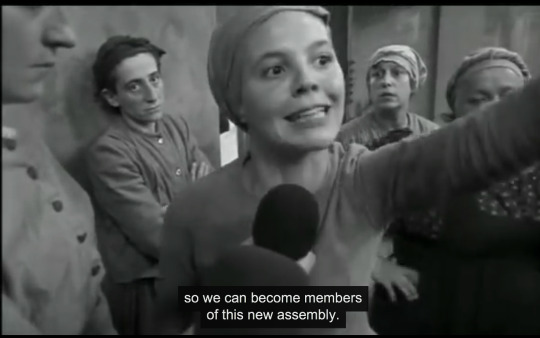
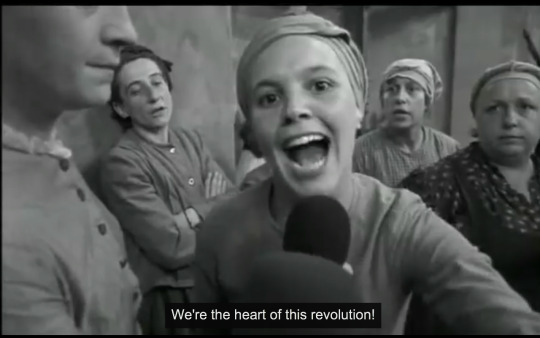
La Commune (Paris, 1871)
To stop the Regular Army from illegally taking the National (Revolutionary) Guard’s canon, women ran in front of the soldiers with their children and convinced them to not shoot their fellow Frenchmen. Women have often played integral roles during revolutions though they rarely get the representation and recognition that they deserve.
249 notes
·
View notes
Quote
One day there was an anonymous present sitting on my doorstep—Volume One of Capital by Karl Marx, in a brown paper bag. A joke? Serious? And who had sent it? I never found out. Late that night, naked in bed, I leafed through it. The beginning was impenetrable, I couldn’t understand it, but when I came to the part about the lives of the workers—the coal miners, the child laborers—I could feel myself suddenly breathing more slowly. How angry he was. Page after page. Then I turned back to an earlier section, and I came to a phrase that I’d heard before, a strange, upsetting, sort of ugly phrase: this was the section on “commodity fetishism,” “the fetishism of commodities.” I wanted to understand that weird-sounding phrase, but I could tell that, to understand it, your whole life would probably have to change. His explanation was very elusive. He used the example that people say, “Twenty yards of linen are worth two pounds.” People say that about every thing that it has a certain value. This is worth that. This coat, this sweater, this cup of coffee: each thing worth some quantity of money, or some number of other things—one coat, worth three sweaters, or so much money—as if that coat, suddenly appearing on the earth, contained somewhere inside itself an amount of value, like an inner soul, as if the coat were a fetish, a physical object that contains a living spirit. But what really determines the value of a coat? The coat’s price comes from its history, the history of all the people involved in making it and selling it and all the particular relationships they had. And if we buy the coat, we, too, form relationships with all those people, and yet we hide those relationships from our own awareness by pretending we live in a world where coats have no history but just fall down from heaven with prices marked inside. “I like this coat,” we say, “It’s not expensive,” as if that were a fact about the coat and not the end of a story about all the people who made it and sold it, “I like the pictures in this magazine.”A naked woman leans over a fence. A man buys a magazine and stares at her picture. The destinies of these two are linked. The man has paid the woman to take off her clothes, to lean over the fence. The photograph contains its history—the moment the woman unbuttoned her shirt, how she felt, what the photographer said. The price of the magazine is a code that describes the relationships between all these people—the woman, the man, the publisher, the photographer—who commanded, who obeyed. The cup of coffee contains the history of the peasants who picked the beans, how some of them fainted in the heat of the sun, some were beaten, some were kicked.For two days I could see the fetishism of commodities everywhere around me. It was a strange feeling. Then on the third day I lost it, it was gone, I couldn’t see it anymore.
Wallace Shawn, The Fever
(To understand it, your whole life would probably have to change.)
52K notes
·
View notes
Quote
The best people possess a feeling for beauty, the courage to take risks, the discipline to tell the truth, the capacity for sacrifice. Ironically, their virtues make them vulnerable; they are often wounded, sometimes destroyed.
Ernest Hemingway (via monkishpoet)
1K notes
·
View notes
Quote
Here is the deepest secret nobody knows. Here is the root of the root and the bud of the bud And the sky of the sky of a tree called life; Which grows higher than soul can hope or mind can hide. And this is the wonder that's keeping the stars apart. I carry your heart. I carry it in my heart.
E. E. Cummings
6 notes
·
View notes
Quote
This love means an affirmative desire towards the Other – to respect the Other, to pay attention to the Other, not to destroy the otherness of the Other – and this is the preliminary affirmation, even if afterwards because of this love, you ask questions. There is some negativity in deconstruction. I wouldn’t deny this. You have to criticise, to ask questions, to challenge and sometimes to oppose. What I have said is that in the final instance, deconstruction is not negative although negativity is no doubt at work. Now, in order to criticise, to negate, to deny, you have first to say “yes”. When you address the Other, even if it is to oppose the Other, you make a sort of promise – that is, to address the Other as Other, not to reduce the otherness of the Other, and to take into account the singularity of the Other. That’s an irreducible affirmation, its the original ethics if you want. So from that point of view, there is an ethics of deconstruction. Not in the usual sense, but there is an affirmation. You know, I often use a quote from Rosensweig or even from Levinas which says that the “yes” is not a word like others, that even if you do not pronounce the word, there is a “yes” implicit in every language, even if you multiply the “no”, there is a “yes”. And this is even the case with Heidegger. You know Heidegger, for a long time, for years and years kept saying that thinking started with questioning, that questioning (fragen) is the dignity of thinking. And then one day, without contradicting this statement, he said “yes, but there is something even more originary than questioning, than this piety of thinking,” and it is what he called zusage which means to acquiesce, to accept, to say “yes”, to affirm. So this zusage is not only prior to questioning, but it is supposed by any questioning. To ask a question, you must first tell the Other that I am speaking to you. Even to oppose or challenge the Other, you must say “at least I speak to you”, “I say yes to our being in common together”. So this is what I meant by love, this reaffirmation of the affirmation.
Jacques Derrida, interviewed by Nikhil Padgaonkar (via heteroglossia)
1K notes
·
View notes
Quote
I want to change systems: no longer to unmask, no longer to interpret, but to make consciousness itself a drug, and thereby to accede to the perfect version of reality, to the great bright dream, to prophetic love
Roland Barthes, A Lover’s Discourse: Fragments
18 notes
·
View notes

